In today’s fast-paced world, pursuing an online early childhood education master’s degree can be a game-changer for educators. It opens doors to advanced knowledge and skills, empowering me to make a significant impact in children’s lives. With the flexibility of online learning, I can balance my studies with work and personal commitments, making it easier than ever to advance my career.
These programs offer a comprehensive curriculum that dives deep into child development, teaching strategies, and educational leadership. By choosing an online format, I can access top-notch resources and connect with fellow educators from around the country. Whether I’m looking to enhance my teaching methods or step into administrative roles, an online master’s degree in early childhood education provides the foundation I need to succeed.
Key Takeaways
- Flexibility and Accessibility: Online early childhood education master’s degree programs provide the freedom to balance studies, work, and personal commitments, making advanced education more attainable.
- Comprehensive Curriculum: These programs cover essential topics such as child development, curriculum design, assessment strategies, and diversity, preparing educators for various roles in early childhood settings.
- Accreditation Matters: Enrolling in accredited programs, like those recognized by NAEYC or CAEP, enhances the quality of education and improves job market competitiveness.
- Field Experience Opportunities: Many programs incorporate internships or field placements, allowing students to apply theoretical knowledge in real-world settings, which is vital for professional growth.
- Diverse Career Paths: Graduates can pursue various exciting roles, including curriculum developers, educational leaders, and consultants, often commanding competitive salaries.
- Networking and Collaboration: Online programs foster connections with peers and faculty through virtual platforms, enhancing learning and professional opportunities in early childhood education.
Online Early Childhood Education Master’s Degree Programs
 Online early childhood education master’s degree programs offer flexibility and accessibility for educators aiming to advance their careers. With dedicated coursework focusing on child development, teaching methodologies, and educational leadership, these programs prepare educators to excel in various roles within early childhood settings.
Online early childhood education master’s degree programs offer flexibility and accessibility for educators aiming to advance their careers. With dedicated coursework focusing on child development, teaching methodologies, and educational leadership, these programs prepare educators to excel in various roles within early childhood settings.
Most programs require around 30 to 36 credit hours, typically comprising core courses, electives, and a capstone project or thesis. Common course topics include:
- Child Development: Examining the physical, cognitive, and emotional development of children.
- Curriculum Design: Creating effective and engaging learning activities tailored for young learners.
- Assessment Strategies: Understanding various techniques to measure student progress and learning outcomes.
- Diversity and Inclusion: Addressing the needs of diverse learners through culturally relevant practices.
Accreditation plays a crucial role in ensuring program quality. I focus on programs accredited by organizations such as the National Association for the Education of Young Children (NAEYC) or regional accrediting bodies. Such credentials enhance the program’s recognition and value in the job market.
Additionally, many programs include field experiences or internships, allowing me to apply theoretical knowledge in real-world settings. Networking opportunities with fellow educators and faculty members occur through online forums, webinars, and collaborative projects. Engaging in these activities fosters professional relationships that support career growth.
Ultimately, online early childhood education master’s degree programs equip me with the knowledge and skills to create impactful learning environments for young children while offering the convenience to study at my own pace.
Advantages of Online Learning
Online learning offers distinct benefits for educators pursuing a master’s degree in early childhood education. From flexibility to cost savings, these advantages make it an appealing option for many.
Flexibility and Convenience
Flexibility defines online learning. I can access course materials anytime and anywhere, making it easier to fit studies around my job and personal life. Most programs allow me to choose my study pace, enabling me to balance coursework with teaching responsibilities. Online classes often offer asynchronous formats, meaning I can participate in discussions and complete assignments when it suits me best. This flexibility helps me to engage fully in my studies without sacrificing my professional duties or personal commitments.
Cost-Effectiveness
Cost-effectiveness also plays a significant role in online master’s programs. Tuition rates for online programs often compare favorably to traditional in-person options, allowing me to save money on commuting and housing expenses. Many online programs offer reduced fees for course materials and resources. Additionally, I benefit from the ability to work while studying, which means I can maintain my income without taking time off. These financial advantages make earning an advanced degree more accessible and less of a burden.
Key Features of Strong Programs
 Strong online early childhood education master’s degree programs provide essential elements that contribute to effective learning and professional growth. These features enhance the overall quality and experience of the educational journey.
Strong online early childhood education master’s degree programs provide essential elements that contribute to effective learning and professional growth. These features enhance the overall quality and experience of the educational journey.
Curriculum and Course Offerings
Curricula in top programs encompass a well-rounded selection of courses tailored to meet contemporary educational needs. Core subjects typically feature child development, curriculum design, and assessment strategies. Electives allow educators to specialize in areas such as special education, bilingual education, or leadership in early childhood settings. A capstone project or thesis is often required, facilitating practical application of theoretical concepts. Programs emphasize inclusivity and diversity, equipping educators to create equitable learning environments. Engaging learning materials, interactive assignments, and collaborative projects supplement the core curriculum, fostering a comprehensive understanding of effective early childhood education practices.
Accreditation and Credentials
Accreditation from recognized organizations is a critical indicator of program quality. Top programs often hold accreditation from agencies like the Council for the Accreditation of Educator Preparation (CAEP) or the National Association for the Education of Young Children (NAEYC). Such credentials assure educators that the program meets established standards for quality and effectiveness. Graduating from an accredited program increases employability and acceptance in advanced positions. Programs that offer alignment with state licensing requirements also ensure that educators are well-prepared for their roles in the classroom and beyond, enhancing their professional opportunities in early childhood education.
Popular Online Programs to Consider
Several reputable online early childhood education master’s degree programs are available, each offering unique features and benefits. Below are two noteworthy options that stand out in this field.
Program 1: Overview and Highlights
The Master of Arts in Early Childhood Education at Columbia University focuses on developing innovative teaching practices. This program requires 36 credit hours, covering areas such as child development, curriculum design, and teaching strategies. Key highlights include:
- Accreditation: Accredited by the Council for the Accreditation of Educator Preparation (CAEP), ensuring high standards.
- Field Experience: Offers extensive field placement opportunities to apply theoretical knowledge in real settings.
- Networking: Provides access to a robust network of educators and alumni.
Graduates often pursue roles as curriculum developers or educational leaders, effectively impacting young learners.
Program 2: Overview and Highlights
The Online Master of Education in Early Childhood Education at the University of Florida emphasizes research and practical application. This program comprises 30 credit hours, designed to enhance problem-solving and critical-thinking skills. Notable features include:
- Accreditation: Holds accreditation from the National Association for the Education of Young Children (NAEYC).
- Flexible Schedule: Allows students to complete coursework asynchronously, providing optimal work-life balance.
- Focus Areas: Offers elective tracks in special education, family and community collaboration, and leadership.
Graduates often secure positions as educational consultants or specialists in early childhood settings, promoting effective educational practices.
Career Opportunities After Graduation
Graduating from an online early childhood education master’s degree program opens various career pathways. Educators can pursue roles that significantly impact young children’s development and education.
Types of Jobs Available
- Curriculum Developer: Designs and evaluates educational programs, ensuring alignment with standards and child development principles.
- Educational Leader: Takes on administrative roles, such as program director or principal, overseeing early childhood education facilities.
- Teacher Educator: Prepares future educators to work in early childhood settings, teaching methods and best practices for child engagement.
- Educational Consultant: Advises schools or organizations on curriculum design, instructional methods, and policy development.
- Child Development Specialist: Provides assessments and interventions for children with developmental challenges to support their learning.
- Family Support Specialist: Works with families to enhance parenting skills and child-rearing practices, contributing to child success in educational settings.
Potential Salary Expectations
The salary for professionals with an early childhood education master’s degree varies by position and location.
| Job Title | Average Annual Salary |
|---|---|
| Curriculum Developer | $65,000 |
| Educational Leader | $75,000 |
| Teacher Educator | $68,000 |
| Educational Consultant | $72,000 |
| Child Development Specialist | $60,000 |
| Family Support Specialist | $55,000 |
Graduates can expect these averages, which reflect the demand and expertise required in the early childhood education field. Factors like experience, geographic location, and specific job duties influence these figures significantly.
Pursuing an online early childhood education master’s degree is a game-changer for educators. It opens doors to new opportunities while allowing for a balance between work and personal life. The flexibility of online programs makes it easier to enhance skills and knowledge without sacrificing other commitments.
With a well-rounded curriculum and accredited programs, I can confidently say that this degree prepares educators for impactful careers. Whether aiming for leadership roles or focusing on curriculum development, the potential to make a difference in children’s lives is immense. Embracing this educational journey can lead to a fulfilling and rewarding career in early childhood education.

